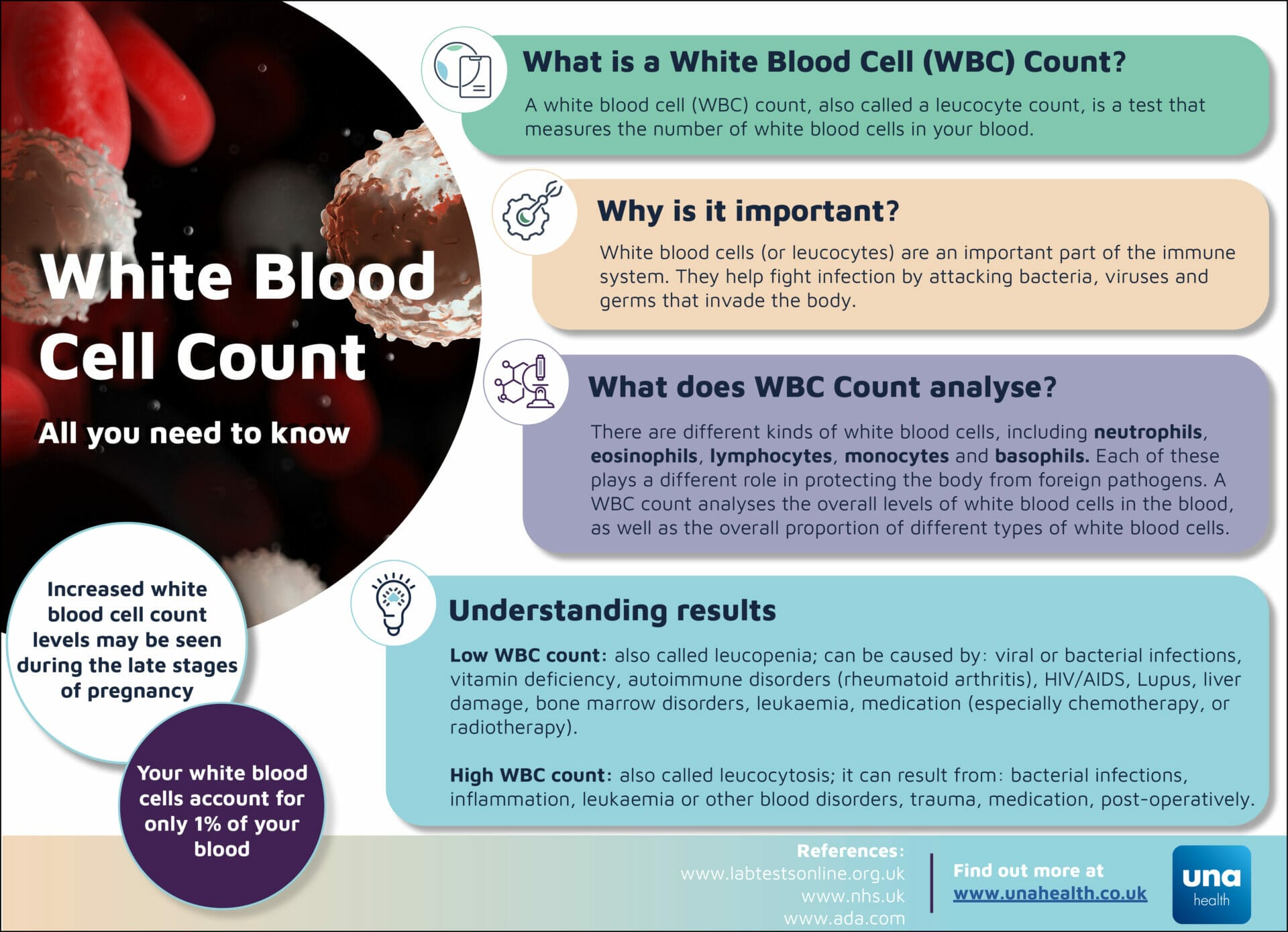
White Blood Cell Count – all you need to know
A White Blood Cell (WBC) Count, or leucocyte count, is a blood test that measures the number of white blood cells in your blood. It is often part of a Full Blood Count (FBC), which is commonly used as part of a routine blood test or to screen for different conditions that may affect your overall health.
White blood cells are a part of your immune system that protects your body from infection. These cells are present in your bloodstream and tissues to respond to injury or illness. They attack any unknown organisms that enter your body.
The number of white blood cells in the body differs between individuals or at different ages in their lives.
There are several types of white blood cells: neutrophils, eosinophils, lymphocytes, monocytes and basophils. Each type of white blood cells plays a different role in protecting the body from viruses, bacteria, fungi and parasites. Your body usually contains a percentage of each type.
Check out our infographic to learn more.

